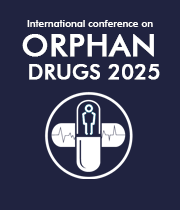Medical Affairs and Regulatory Affairs
Diseases classified as rare (orphan) are those with a very low prevalence. Children are disproportionately affected by rare or orphan diseases, which are frequently inherited. Many of these diseases are incurable and have terrible consequences for individuals and their families. Patients and health-care systems alike face numerous challenges as a result of rare diseases. They are rarely explored since they are unusual, and there is less understanding about the condition and fewer doctors who specialise in it. Furthermore, because most diseases do not have a specific therapy, diagnosis is not necessary. Patients must get safe and effective treatments, according to regulatory standards for drug approval for rare diseases. The challenge for regulators, patient groups, pharmaceutical companies, politicians, and payers is to ensure that novel therapies are available to everyone, regardless of nationality or economic status. Despite improvements, there is still a need for investment in the field of rare diseases. There is no financial incentive for industry to invest in discovering medicines for rare diseases because the market potential is small. All of this prompted patients, researchers, and governments all over the world to pass a bill encouraging and incentivizing researchers and the pharmaceutical industry to produce scientific and clinical understanding, as well as potential remedies, for these disorders.
- Global Regulatory Status
- Clinical Trial Design
- Novel Statistical Analysis Approach
- Methodological and Statistical Challenges
- Legal Aspects
- Healthcare Impacts

Sergey Suchkov
The Russian University of Medicine & Russian Academy of Natural Sciences, Russian Federation
Vladlen Slepak
University of Miami, United States
Harsha Rajasimha
Jeeva Clinical Trials, Inc, United States
Vladlen Slepak
University of Miami, United States
Harsha Rajasimha
Jeeva Clinical Trials, Inc, United States
Sergey Suchkov
The Russian University of Medicine & Russian Academy of Natural Sciences, Russian Federation


Title : Emerging solutions for inclusive orphan drug clinical trials management
Harsha Rajasimha, Jeeva Clinical Trials, Inc, United States
Title : Ectopically expressed olfactory receptors as an untapped family of drug targets. Discovery of agonists and antagonists of OR51E1, an understudied G protein-coupled receptor
Vladlen Slepak, University of Miami, United States
Title : Personalized and Precision Medicine (PPM) as a unique healthcare model to secure the human healthcare and biosafety among childhood
Sergey Suchkov, The Russian University of Medicine & Russian Academy of Natural Sciences, Russian Federation
Title : Orphan and rare disease emerging as a global public health priority through the view of personalized and precision medicine: How to use the latter to revolutionize pediatric services
Sergey Suchkov, The Russian University of Medicine & Russian Academy of Natural Sciences, Russian Federation
Title : Personalized and Precision Medicine (PPM) though the view of reproductive healthcare, pediatric services and natural family planning: an option for clinicians and caregivers realize the potential of genomics-informed care to secure the individualized human biosafety
Sergey Suchkov, The Russian University of Medicine & Russian Academy of Natural Sciences, Russian Federation
Title : Democratizing ASO drug discovery at La Jolla Labs
Melissa Keenan, La Jolla Labs, United States